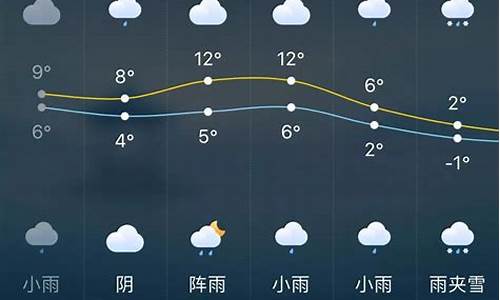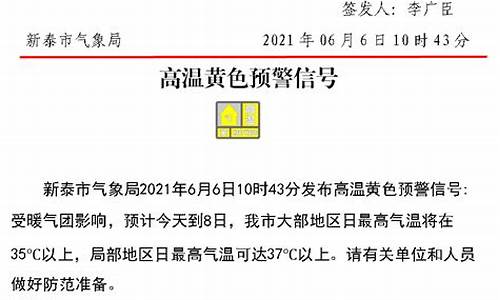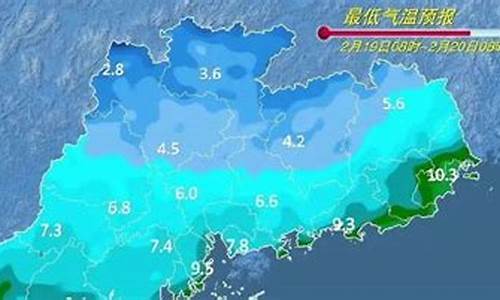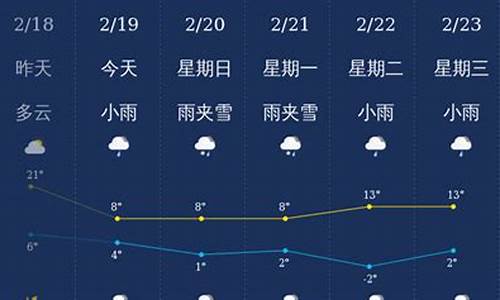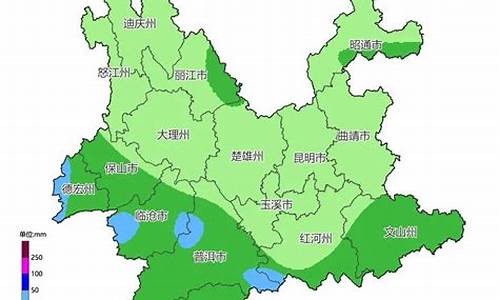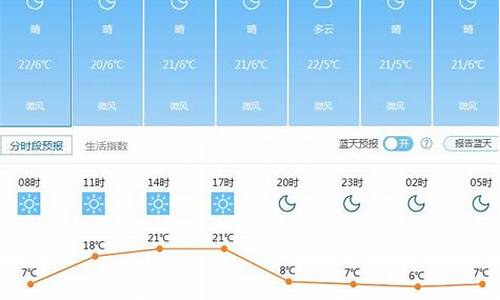天气变凉的英语定语从句_天气开始变凉的英语
1.求 关于 英语定语从句的语法[详细的]
2.英语中什么是定语从句和状语从句?
3.天气更冷了,注意保暖英语怎么说

天气凉爽的英语是the weather is cool。
和天气凉爽相关的词语:
1、nice and cool;pleasantly cool。凉爽,消气,cool off;凉爽,冷淡coolness;凉爽,降温cool;凉爽的colbert,cool;凉爽呢wool-like fabric;凉爽药refrigerants。
2、保持凉爽kecool,keep cool;房间很凉爽the room is nice and cool;具有特凉爽very cool;冷, 凉爽, 冷静coolness;冷静变凉爽cool off;凉处,凉爽处cool place。
3、凉爽的房间a cool room dress etc;凉爽的空气cool;凉爽的秋天pleasantly cool autumn days;凉爽多风cool and windy;凉爽空气浴cool air bath;凉爽香皂cooling soap;凉爽整理air-cooled finish。
4、毛涤凉爽呢wool polyester tropical;如此凉爽sweet day so cool so calm so bright;提神的,凉爽的refreshing;晚间凉爽宜人the evening is delightfully cool。
天气凉爽的英语例句:
1、lt is so cool as if it were autumn.
天气凉爽的好象是秋天—样。
2、lt's cool and windy. We expect rain there and throughout the Midwest thisafternoon. So get out your umbrella.
天气凉爽和有风我们认为今天下午整个中西部哪儿可能会下雨,所以记得带上雨伞。
3、At this point in the year the weather is cool and the plants are particularly vigorousafter a long winter's slumber.
此时在今年天气凉爽,植物经过漫长的冬天特别严厉的沉睡。
4、With a cool and moist climate, the Yarra Valley in Australia is a perfect place forgrowing grape.
澳大利亚的亚拉河谷,天气凉爽湿润,非常适合葡萄的生长。
5、Lanzhou's dry and cool weather was quite comfortable for the two days l visitedand the surrounding mountains were very nice.
在我到访的两天里,兰州的天气凉爽干燥,十分舒适,周围的山峦也很漂亮。
求 关于 英语定语从句的语法[详细的]
这是一个定语从句。
不是主语从句,假如是主从正装过来是(He went to bed) is the time. 显然是说不通的。
那这个It是什么?是表达时间啊、天气啊等常用的习惯主语,例如It is 7 o'clock,或者It is raining outside.
为什么这个句子是定从?
从翻译上看,It is time that sb. did/should do翻译为“是该某人做...的时候了”,显然从句修饰time,为定从,并且这个定从用了虚拟语气;
从语法上看,你可能觉得要是定从的话,应该是It is time when he went to bed才对啊,time显然在定从中做时间状语,但是咱别忘了:
that也可用作关系副词,表示时间、地点、原因和方式,在口语中可以用来代替when, where, why 引导的定语从句。在以下名词day, year, time, moment, reason, place, way等作先行词时,可用that作关系副词引导定语从句,而且此时that还可省略。例如:
I'll never forget the day (that) I joined the League.
我永远不会忘记我入团的那一天。
Is this the reason (that) they were late for the meeting?
这就是他们开会迟到的原因吗?
We want to find a place (that) we can have a picnic.
我们想找一个我们能野餐的地方。
This is the first time that I have been abroad for traveling.
这是我第一次到国外去旅游。
赞你对于固定句型也深究语法的行为!
英语中什么是定语从句和状语从句?
定语从句(Attributive Clauses)在句中做定语,修饰一个名词或代词,被修饰的名词,词组或代词即先行词。定语从句通常出现在先行词之后,由关系词(关系代词或关系副词)引出。
位置:先行词之后。
关系词常有3个作用:
①连接作用,引导定语从句。
②代替先行词。
③在定语从句中担当一个成分。
关系代词引导的定语从句举例
关系代词所代替的先行词是人或物的名词或代词,并在从句中充当主语、宾语、定语等成分。关系代词在定语从句中作主词保持一致。
1,who, whom, that
这些词代替指人,“whom”作宾语指人,“that”既可作主语又可作宾语(作宾语可以省略),可以指人也可以指物。在从句中所起作用如下:
(1)Is he the man who/that wants to see you? 他是那个想见你的男人吗?(who/that在从句中作主语)
(2)He is the man whom/ that I saw yesterday. 他就是我昨天见的那个人。(whom/that在从句中作宾语)
(3)The man whom you spoke to just now is our English teacher. 你刚刚说话的那个男人是我们的英语老师。
2,Which 用来指人或物
(用作主语、宾语,作宾语时可以省略),例如:
(1)Prosperitywhich / that had neppearsin te. 农村出现了前所未有的繁荣。(which / that在从句中作主语)
(2)The package (which / that) you are carryingis about to come unwrapped.你拿那个包裹快要散开了。(which / that在从句中作宾语)
whose(只用作定语) “whose”表示谁(可以为人也可以为物)的(东西) 例:
A child whose parents are dead is called an arphan.双亲都死了的孩子叫做孤儿。(“whose”表示那个孩子的双亲)
He lives in a room whose window faces south.他住的那个房子的窗户是朝南的。(“whose”表示那个房子的窗户)
关系代词:在句中作主语、宾语或定语。
1. that既可代表事物也可代表人,“which”代表事物;它们在从句中作主语或宾语,“that”在从句中作宾语时常可省略关系词,“which”在从省略。[eg:This is the book (which)you want.]
2. 不及物动词+介词”的介词的宾语代词“wh”放在它原来的位置。
3. 代表物时多这时的that常被省略;
c)被形容词最高级修饰时;既有人又有物时;
e)整个句中前面已有“which”,“wh”行
关系副词:在句中作状语
关系副词=介词+关系代词
why=for which
where=in/ at/ on which(介词同先行词搭配)
when=during/ on/ in/…… which(介词同先行词搭配)
1. “where”是关系代词,当然也不用“that”引导。
By the time when you arrived in London, we had stayed there for two weeks. 到你到达伦敦的时候,我们在那里已经待了两个星期。
I still remember where I met her for the first time. 我仍然记得我第一次见到她。
Each time when he goes to business trip, he brings a lot of living necessities, such as towels, soap, toothbrush etc。 他每次出差都带来了生活必需品,如毛巾,肥皂,牙刷等其他东西。
3. 当从句的逻辑主语是some, any, no, somebody, anybody, nobody, something, anything, everything或nothing时,常用“there is”开头。
There is somebody here who wants to talk to you. 这里有人要和你说话。
分作进一步说明,通常是引导词和先行词之间用逗号隔开,将从句拿掉后其他部分仍可成立。
关系副词的用法及说明
关系副词why
关系副词why主要用于修饰表示原因的名词(主要是the reason),同时它在定语从句中用作原因状语。如:
We don’t know the reason why he didn’t show up. 我们不知道他为什么没有来。
She didn’t tell me the reason why she refused the offer. 她没跟我讲她拒绝这项工作的原因。
与关系副词when和where不同,why可以换成that或省略。如:
That’s one of the reasons (why, that) I asked you to come. 这就是我请你来的原因之一。
另外,与关系副词when和where可以引导非限制性定语从句不一样,why只能引导限制性定语从句,不能引导非限制性定语从句。如:
他失去工作的主要原因是他喝酒。
误:The main reason, why he lost his job, was that he drank.
正:The main reason why he lost his job was that he drank.
关系副词when
关系副词when主要用于修饰表示时间的名词,同时它在定语从句中用作时间状语。如:
There comes a time when you have to make a choice. 你必须作出抉择的时候到了。
Gone are the days when they could do what they liked. 他们为所欲为的日子一去不复返了。
We’ll put off the picnic until next week, when the weather may be better. 我们将把野餐推迟到下星期,那时天气可能会好一点。
注意不要一见到先行词为时间名词,就以为一定要用关系副词when来引导定语从句,同时还要看它在定语从句中充当什么成分——如果在定语从句中用作时间状语,就用when;如果在定语从句中不是用作时间状语,而是用作主语或宾语,那就不能用when,而要用that, which等。如:
Don’t forget the time (that, which) I’ve told you. 不要忘记我告诉你的时间。
关系代词that / which在定语从句中用作动词told的宾语,正因为是用作宾语,所以也可以省略。
关系副词where
关系副词where主要用于修饰表示地点的名词,同时它在定语从句中用作地点状语。如:
This is the village where he was born. 这就是他出生的村子。
That’s the hotel where we were staying last summer. 这就是我们去年夏天住的旅馆。
Barbary was working in Aubury, where she went daily in a bus. 巴巴拉在奥伯里工作,每天得坐公共汽车去上班。
与前面when的情况一样,注意不要一见到先行词为地点名词,就以为一定要用关系副词where来引导定语从句,同时还要看它在定语从句中充当什么成分——如果在定语从句中用作地点状语,就用where;如果在定语从句中不是用作地点状语,而是用作主语或宾语,那就不能用where,而要用that, which等。如:
He works in a factory that [which] makes TV sets. 他在一家电视机厂工作。
关系代词that / which在定语从句中用作主语。
另外注意,where有时还可用于抽象名词后引导定语从句。如:
We have reached a point where a change is needed. 我们到了必须改一改的地步。
There are cases where the word “mighty”is used as an adverb. 在一些情况下,mighty一词可用作副词。
He got into a situation where it is hard to decide what is right and wrong. 他陷入一种难以分辨是非的局面。
I don’t want a job where I’m chained to a desk all day. 我不想找一份整天坐办公桌前的工作。
非限制性定语从句
意义:
非限制性定语从句起补充说明作用,缺少也不会影响全句的理解。在非限制性定语从句的前面往往有逗号隔开,如The house,which I bought last year,has a lovely garden. 我去年买的的房子带着个漂亮的花园。
This novel, which I have read three times, is very touching. 这本我已经读过三遍的小说很感人。 3. 非限定性定语从句可将整个主句作为先行词, 对其进行修饰, 这时从句谓语动词要用第三人称单数,例如:
He seems not to have grasped what I meant, which greatly upsets me.他似乎没抓住我的意思,这使我心烦。
Liquid water changes to vapor, which is called evaporation. 液态水变为蒸汽,这就叫做蒸发。4. 有时as也可用作关系代词
5. 在非限定性定语从句中,不能用关在从句中做主语
(1)The boys who are playing football are from Class One. 在踢足球的男孩们是一班的。
(2)Yesterday I helped an old man who lost his way. 昨天,我帮助了一个迷路的老人。
whom指人
注意:关系代词“whom”在口语和非正式语体中常用“who”代替,可省略。
如果在从句中做宾语,就用“whom”或“who”。
He is the man who has an English book. 他就是那个有英语书的男人。
You just met the person who was my friend. 你刚刚见到的那个人就是我的朋友。
which that 通常指人也可指物
在定语从句中做定语,表所有。
(1)He has a friend whose father is a doctor. 他有一个朋友的父亲是医生。
(2)I once lived in a house whose roof has fallen in.我曾经住在一座现在已经倒塌的房子中。 “whose”指物时通常以以下结构来代替:
(3)What is the color.Football is the game which is liked by most boys.
颜色是什么。足球是大多数男孩都喜欢的游戏。
(4)This is the pen(which)he bought yesterday. 这是他昨天刚买的钢笔。
that指人时,相当于“who”或者“whom”;指物时,相当于“which”当前头有最高级序数词“all”不定代词时必须用“that”。
在定语从句中做主语、表语或者宾语,做宾语时可省略。
(5)The number of the people that/who come to visit the city each year rises one million. 每年来这座城市观光的游客数目上升了100万。
(6)Where is the man this morning? 今天早上这个男人在哪?
when指时间,在定语从句中做时间状语也可做连接词用。
(1)(1) I still remember the day when I first came to the school. (2) The time when we got together finally came.
why指原因,在定语从句中做原因状语。
(1)Please tell me the reason why you missed the plane.
(2)I don't know the reason why he lookswhen/in which he was going to school he began to know what he wanted when he grew up.
介词和关系代词
1)介词后面的关系代词不能省略。
2)“that”前“Do you”作介词的宾语,且可以省略。例如:
(1)The school(that/which)he once studied in is very famous.“that/which”可以省略。
= The school I which hied is very famous.“which”不可省略。
(2)Tomorrow I will bring here 用,如:look for, look after, take care of等。
T This is the watch which/that I am looking for.(T=正确)
F This is the watch for which I am looking.(F=错误)
2. 若介词放在关系代词前,关系代词指人时用“whom”,不可用“who”或者“that”;指物时用“which”,不能用“that”;关系代词是所有格时用“whose”
(1)The man with whom you talked is my friend.(T)
The man famous.
(2)I bought many books yesterday, three of which are written by Lu Xun.
关系代词
关系代词(一般情况下)“that”可用在从句做主语,谓动词的宾语,但是不能做介词的宾语。“which”指物,在从句句中作主语;
“whom”在从句中作宾语;
“why”在从句中修语,先行词通常是“the reason”;
有时“why”也可用“for+which”代替。
例:A doctor who looks after people's health.
主语 谓语 先行词 定语从句修饰先行词
判断介词和关系代词
方法一: 用关系代词,还是关系副词完全取决于从句中的谓语动词。不及物动词后面无宾语,就必须要求用关系副词或者是介词加关系代词;而及物动词后接宾语,则要求用关系代词。例如:
This is the mountain village where I stayed last year.
判断改错:
(错) This is the mountain village where I visited last year.
(错) I will never forget the days when I spent in the countryside.
(对) This is the mountain village (which) I visited last year.
(对) I'll never forget the days (which) I spent in the countryside.
例. Is this the museum ____ the exhibition was held? A. where B. that C. on which D. the one
解析:
主、谓、宾俱全,从句部分为句子的状语表地点,既可用副词where,又因 in the museum词组,可用介词in + which 引导地点状语。而此题中,介词on 用的不对,所以选A。
关系词的选择依据在从句中所做的成分,先行词在从句中做主、宾语时,选择关系代词(who, whom, that, which, whose);
先行词在从句中做状语时,应选择关系副词(“where”地点状语,“when”时间状语,“why”原因状语)。
先行词和关系词
1)Whoever spits in public will be punished here.(“Whoever”可以用“anyone who”代替)
2)The parents will use what they have to send their son to technical school. (“what”可以用“all that”代替)
但这两句句子已经不是定语从句了,是名词性从句。因为定语从句一定要有先行词,而名词性从句没有。将“Whoever”、“what”分别用“Anyone who”、“all that”代替后,才是定语从句,先行词分别是“Anyone”、“all”。
an invitation from her boss, ___came as a surprise.
A. it B. that C. which D. he
答案C。
此为非限定性从句,不能用“that”修饰,而用“which”、“it”和“he”都使后句成为句子,两个独立的句子不能单以逗号连接。况且选“he”句意不通。
2)The weather turned out to be very good, ___ was more than we could expect.
A. what B. which C. that D. it
答案B
英语语法上行不通。
3)It rained hard yesterday, ____ prevented me from going to the park.
A. that B. which C. as D. it
答案B
“as”和“which”在引导非限宾语。但不同之处主要有两点:
(1)importance to me, as my own is.
在一定的语言环境里,有些名词可以具有形容词的性质。这些名词主要是那些表示人的身份、职业、状态的名词。值得一提的是,在这些具有形容词性质的名词之后,引导定语从句的关系代词不能用“who / whom”。
(2)动词短语先行成分。
这种动词短语既可是限定形式也可是非限定形式。如果是动态动词短语,它们在从句中就一般有限定或非限定形式的替代动词“do”和“as / which”一起代替。“do”可以出现,也可以不出现,但不能用其它动词代替。
(3)句子作先行成分。
这句子可以是整个主句也可以只是主句中的一个从句。有时是连续几个句子,有时甚至可以是一个完整的故事。
二、“as/which”特殊定语从句在句中的位置。
由于先行成分的构成成分”特殊定语从句在句中的位置有以下几种情况:
1. 形容词做先行成分时:形容质的which”特殊定语从句置于先行成分之后。
2. 动词词短语作先行成分时,“as / which”特殊定语从句置于先行成分之后。但是,当从句中含有表示主观意志的插入成分时,“as”特殊。
3. 句子作先行成分时:“as”特殊定语从句的位置较灵活,可以置于先行成分之前、之中或之后。但如果先行成分是直接引语,“as”特殊定“s”特殊定语从句与否定词的相对中则常用一些表示“合乎自然规律”、“众所周知”或“经常发生”等意义的词语,如natural, known to all, usual等。
3. 有无状语意要是方式状语意义,而“which”特殊定语从句则无状语意义。“as”特殊定四、关系代词“as”与“which”一词。如:
Freddie, as might be expected, was attending the conference.
1). “Which”作主语时,谓语动词不限,主动被动皆可,只是谓语动词为被动语态时助动词“be”省略。
2). “as”和“which”都可以在特殊定语从句中宾语。
3). “as”和“which”在特殊从句中作补语。如:
We thought him a gentleman, as/which he could never be.
“as”特殊定语从句中可以主谓倒装,“which”从句中则不能主谓倒装。
如果先行成分不是主语补语或宾语补语,关系代词用“which”而不用“as”。如:
He talked like a native, which/as he hardly was.
4."as"用法:
1)."as"引导限制性定语从句
a."such....as"
He is not such a fool as he looks.
I have never heard such a story as he tells.
b."the same ....as"
This is the same book as I lost last week.
(区分"the same...as"与"the same....that":"the same..as"指两物相似;"the same...that"引导结果状语从句)
c."as...as"
As many children as came were given some cakes.
2)."as"引导非限制性定语从句
常用句式:as is said above 综上所述
as is known to all 众所周知
as is often the case 通常如此
as is reported in the newspaper 如报纸所报道的
5. “which”在特殊从定法
(1)不用that的情况
(a)在引导非限定性定语从句时。
(错)The tree, which is four hundred years old, Is very famous here.
(b)介词后不能用。
We depend on the land from which we get our food.
We depend on the land that/which we get our food from.
(2)只能用“that”作为定语如“last,just”修饰时,只用“that”。
(d)先行词为序数词、数容词,又有物时。
(f)先行词指物,在主句中作是“the way”或“the reason”时,“that”可作关系副词,也可省略。
(h)主句的主语是疑问词“who /which”时,避免重复要用“that”.
举例:
Is this the book that you borrowed in the library?
这是你在图书馆借的书吗?
Who that break the window should be punished.
谁打碎了窗户。
All that is needed is a supply of oil.
everything that he had stolen to the police.
那贼最终把偷的全部东西交给了警察。
定语从句只能“that”引导的情况:
1、先行词是最高级或被最高级修饰。
This is the most interesting book that l have ever read.
2、先行词是序数词或被序数词修饰。
The second foreign country that l expect to visit is Greek.
3、先行词是不定代词时,如"all、few、little、much、anything、nothing、something"
This is the very good dictionary that I want to buy.
4.、先行词既有人又有物时
Can you remember the scientist and his theory that we have learned?
5、先行词被“only”、“the every”、“no”、“one of”等修饰
He is the only person that l want to talk to.
6、在以“which”、“who”、“whom” 引起的问句中,为避免重复,常用"that"
Who is the man that is standing there? Which is the T-shirt that fits me most?
7、“there be”句型中
8、先行词在主句中作表语,或者关系代词本身作从句的表语是宜用“that”
“that”在作宾语时可省略。
(五)区分定语从句和同位语从句
1、定语从句修饰先行词,它和先行词是修饰关系;
同位语从句说明先行词的具体内容,是补充说明的关系。
(1)The planeis clear. 同位语从句
2、定语从句由关系代for advice.
(3)The fact that the moon moves around the earth is known to all.
(4)The fact is that the moon moves around the earth.
[定语从句]介词+关系词
1)介词后面的关系副词不能省略。
2)“that”前不能有介词。
3)某些在从句中充当时间,地点或原因状语的"介词+关系词"结构可以同关系副词“when”和“where”互换。例如:
This is the house in which I lived two years ago. 这是我两年前住过的房子。
This is the house where I lived two years ago.
Do you remember the day on which you joined our club? 还记得你加入我们俱乐部的那一天吗? Do you remember the day when you joined our club?
天气更冷了,注意保暖英语怎么说
定语从句是由关系代词和关系副词引导的从句,其作用是作定语修饰主句的某个成分,定语从句分为限定性和非限定性从句两种。状语从句分为时间状语从句,结果状语从句,让步状语从句,原因状语从句,条件状语从句以及行为方式状语从句。名词从句包括主语从句,宾语从句,表语从句和同位语从句及there be句型。
一、 限定性定语从句
1. that即可代表事物也可代表人,which代表事物;它们在从句中作主语或宾语,that在从句中作宾语时常可省略关系词,which在从句中作宾语则不能省略。而且,如果which在从句中作“不及物动词+介词”的介词的宾语,注意介词不要丢掉,而且介词总是放在关系代词which的前边,但有的则放在它原来的位置
2. which作宾语时,根据先行词与定语从句之间的语义关系,先行词与which之间的介词不能丢
3. 代表物时多用which,但在带有下列词的句子中用that而不用which,这些词包括all, anything, much等,这时的that常被省略
4. who和whom引导的从句用来修饰人,分别作从句中的主语和宾语,whom作宾语时,要注意它可以作动词的宾语也可以作介词的宾语
5. where是关系副词,用来表示地点的定语从句
6. when引导定语从句表示时间
〔注〕值得一提的是,表示时间“time"一词的定语从句只用when引导,有时不用任何关系代词,当然也不用that引导
By the time you arrive in London, we will have stayed there for two weeks.
I still remember the first time I met her.
Each time he goes to besiness trip, he brings a lot of living necessities, such as towers, soap, toothbrush etc.
7. whose是关系代词,修饰名词作定语,相当于所修饰成分的前置所有格
8. 当从句的逻辑主语是some, any, no, somebody, anybody, nobody, something, anything, everything或nothing时,常用there is来引导
二、非限定性定语从句:非限定性定语从句的作用是对所修饰的成分作进一步说明,通常和主句间用逗号隔开,将从句拿掉后其他部分仍可成立
1. which引导的非限定性定语从句来说明前面整个句子的情况或主句的某一部分
2. 在引导限定性定语从句时,that有时相当于in which, at which, for which或at which
Attitudes towards daydreaming are changing in much the same way that(in which) attitudes towards night dreaming have changed. 人们对白日做梦的态度正在改变,这与人们对夜间做梦的看法的变化有非常相似之处。
I like the music for the very reason that(for which) he dislike it. 我出于某种原因喜欢这种音乐,而他恰恰与我相反。
We arrived the day that(on which) they left. 刚好我们到的那天他们走了。
3. 有时as也可用作关系代词
4. 在非限定性定语从句中,不能用that,而用who, whom代表人,用which代表事物
状语从句
§ 1状语从句的种类
用来修饰谓语动词、其它动词、定语、状语或整个句子的从句叫做状语从句。状语从句可分为:
1.时间状语从句;(adverbial clause of time)
2.地点状语从句;(adverbial clause of place)
3.原因状语从句;(adverbial clause of cause)
4.条件状语从句;(adverbial clause of condition)
5.目的状语从句;(adverbial clause of purpose)
6.让步状语从句;(adverbial clause of concession)
7.比较状语从句;(adverbial clause of comparison)
8.程度状语从句;(adverbial clause of degree)
9.方式状语从句;(adverbial clause of manner)
10.结果状语从句。(adverbial clause of result)
§2状语从句的时态特点
一般情况下,时间和条件状语从句的谓语动词一般用“一般现在时”表示“一般将来时”,用“现在完成时”表示“将来完成时”。例如:
I will call you as soon as I arrive in Beijing. 我一到北京就给你打电话。(这是由as soon as引导的时间状语从句,从句中的谓语动词arrive是一般现在时,表示一般将来时,决不可用will arrive)
As soon as I have finished this work, I will go home. 我一完成此工作,就回家。(从句中的谓语动词用现在完成时have finished,表示将来完成时,决不可用will have finished)
If he comes back, please let me know.如果他回来了,请通知我。(从句中的谓语动词用comes back,表示一般将来时,决不可用will come back)
二 时间状语从句
§3时间状语从句(adverbial clause of time)
1.由when, while, as引导的时间状语从句。例如:
When you think you know nothing, then you begin to know something.当你以为自己一无所知的时候,你就是在开始知道一些事物了。
When truth is buried under the ground it grows, it chokes, it gathers such an explosive force that on the day it bursts out , it blows up everything with it.当真理被埋在地下的时候,它在生长,它感到压抑,它蓄存着这么一种爆炸性力量,一旦冒出,它就会炸破一切!
Strike while the iron is hot. 趁热打铁。
Will you watch my clothes while I have a swim. 我游泳的时候,请你照看一下我的衣服。
You can feel the air moving as your hand pushes through it. 当你的手在空气中挥动的时候,你就能感觉到空气在流动。
Our headmaster laughed as she spoke.我们的校长边谈边笑。
区别when, while和as的区别:when引导的从句的谓语动词可以是延续性的动词,又可以是瞬时动词。并且when有时表示“就在那时”。例如:
When she came in, I stopped eating.她进来时,我在吃饭。(瞬时动词)
When I lived in the countryside, I used to carry some water for him.当的住在农村时,我常常为他担水。(延续性的动词)
We were about to leave when he came in.我们就要离开,就在那时他进来了。
While引导的从句的谓语动作必须是延续性的,并强调主句和从句的动作同时发生(或者相对应)。并且while有时还可以表示对比。例如:
While my wife was reading the newspaper, I was watching TV. (was reading是延续性的动词,was reading和was watching同时发生)
I like playing football while you like playing basketball.我喜欢踢足球,而你喜欢打篮球。(对比)
As表示“一边……一边”,as引导的动作是延续性的动作,一般用于主句和从句动作同时发生;as也可以强调“一先一后。例如:
We always sing as we walk.我们总是边走边唱。(as表示“一边……一边”)
As we was going out, it began to snow.当我们出门时,开始下雪了。(as强调句中两个动作紧接着先后发生,而不强调开始下雪的特定时间)
2.由before和after引导的时间状语从句。注意before引导的从句不再用否定式的谓语,并且当before引导的从句位于主句之后,有时译成“就,才”。还要注意主句和从句之间的时间关系。当主句用将来时,从句总是用现在时;如果before引导的从句谓语用的是过去时,则主句动词多用过去完成时,这样以便体现动作发生的先后。After表示主句动作发生在从句动作之后。主句和从句的动作的时间关系正好与before引导的从句相反。例如:
It will be four days before they come back. 他们要过四天才能回来。
Einstein almost knocked me down before he saw me.爱因斯坦几乎把我撞倒才看到我。
My father had left for Canada just before the letter arrived.我父亲恰好在信到之前去加拿大了。
They had not been married four months before they were divorced. 他们结婚还不到四个月就离婚了。
After you think it over, please let me know what you decide.你仔细考虑过以后,告诉我你是怎样决定的。
After we had finished the work, we went home.完成工作之后,我们回家了。(从句用过去完成时,主句用一般过去时)
3.由till或until引导的时间状语从句。till和until一般情况下两者可以互换,但是在强调句型中多用until。并且要注意的是:如果主句中的谓语动词是瞬时动词时,必须用否定形式;如果主句中的谓语动词是延续性动词时,用肯定或否定形式都可以,但表达的意思不同。例如:
I didn't go to bed until(till) my father came back.直到我父亲回来我才上床睡觉。
It was not until the meeting was over that he began to teach me English.直到散会之后他才开始教我英语。
I worked until he came back.我工作到他回来为止。
I didn't work until he came back.他回来我这才开始工作。
Please wait until I arrived.在我到达之前请等我。
4.由since引导的时间状语从句。 since引导的从句的谓语动词可以是延续性的动词,又可以是瞬时动词。一般情况下,从句谓语动词用一般过去时,而主句的谓语动词用现在完成时。但在It is +时间+since从句的句型中,主句多用一般现在时。例如:
I have been in Beijing since you left. 自从你离开以来,我一直在北京了。
Where have you been since I last saw you? 自上次我和你见面以后,你到哪里去了?
It is four years since my sister lived in Beijing. 我妹妹不在北京住有四年了。
It is five months since our boss was in Beijing.我们老板离开北京有五个月了。
5.由as soon as, immediately, directly, instantly, the moment, the instant, the minute, 等引导的时间状语从句。这些连词都表示“一……就”。例如:
I will go there directly I have finished my breakfast. 吃完早饭,我立即到那里去。
The moment I heard the news, I hastened to the spot.我一听到消息,马上赶到了出事地点。
As soon as I reach Canada, I will ring you up. 我一到加拿大,就给你来电话。
注意hardly(scarcely, rarely)…when / before, no sooner…than相当于as soon as之意。主句用过去完成时,从句用一般过去时。当hardly, scarcely, rarely和no sooner位于句首时,主句应用倒装语序。例如:
He had no sooner arrived home than he was asked to start on another journey. 他刚到家,就被邀请开始另一旅程。
No sooner had the sun shown itself above the horizon than he got out of bed to commence work.太阳刚从地平线上升起,他就起床劳动去了。
Hardly had I sat down when he stepped in.我刚坐下,他就进来了。
He had hardly fallen asleep when he felt a soft touch on his shoulder.这个阿拉伯人刚要入睡就感到肩膀上被轻轻一触。
6.由by the time引导的时间状语从句。注意时态的变化:在一般情况下,如果从句的谓语动词用一般过去时,主句的谓语动词用过去完成时;如果主句的谓语动词用一般现在时,主句的谓语动词用将来完成时。例如:
By the time you came back, I had finished this book.到你回来时,我已经写完这本书了。
By the time you come here tomorrow, I will have finished this work. 你明天来这儿的时候,我将已经完成此工作了。
7.由each time, every time和whenever引导的时间状语从句。例如:
Each time he came to Harbin, he would call on me. 他每次来哈尔滨,总是来看我。
Whenever that man says“To tell the truth”, I suspect that he's about to tell a lie.每当那个人说“说实在话”的时候,我猜想他就要说谎了。
You grow younger every time I see you. 每次遇到你,见你更年轻了。
8.由as long as和so long as引导的时间状语从句。这两个连词表示“有多久……就多久”。例如:
You can go where you like as long as you get back before dark. 你可以随意到哪里去,只要在天黑以前回来就行。
I will fight against these conditions as long as there is a breath in my body! 只要我一息尚存,我就要反对这种境况。
三 地点状语从句
§4地点状语从句 (adverbial clause of place)
地点状语从句一般由连接副词where, wherever等引导,已经形成了固定的句型,例如:
句型1:Where+地点从句,(there)+主句。
注意此句型通常译成“哪里……哪里就……”;主句在从句后面时,there可用可不用;如果主句在从句的前面时,一般都不用there。例如:
Where there is no rain, farming is difficult or impossible.在没有雨水的地方,耕作是困难的,或根本不可能的。
They were good persons. Where they went, there they were warmly welcomed. 他们都是好人。因此他们走到哪里都受到热烈欢迎。
You should have put the book where you found it. 你本来应该把书放回原来的地方。
Where the Communist Party of China goes, there the people are liberated.哪里有了中国***,哪里人民得解放。
句型2:Anywhere/ wherever+地点从句,+主句。
注意anywhere本身是个副词,但是,常可以引导从句,相当于连词,意思相似于wherever, anywhere引导的从句可位于主句之前,也可以位于主句之后。 而wherever本身就是个连词,表示“在何处,无论何处”。例如:
Wherever the sea is , you will find seamen.有海就有海员。
It's colder. Keep warm. 天气更冷了,注意保暖。
重点词汇:
保暖:warm;?keep warm;?Warm;?stay warm
词汇解析:
getting:收到;接到;获得;得到;(卖某物)挣得
发音:英 [?ɡet?] 美 [?ɡet?]?
get的现在分词
例:I've?been?trying?to?give?up?smoking?for?getting?on?for?two?years?now?
译:到现在,我设法戒烟已快两年了。
cold:寒冷的;冷的;未热过的;已凉的;冷却的;冷漠的;不友好的
发音:英 [k?ld] 美 [ko?ld]?
复数:colds? 比较级:colder? 最高级:coldest
例:He?must?have?come?inside?to?get?out?of?the?cold?
译:他肯定是进来避寒的。
天气更冷了,表示有比较和之前比更冷,因此用?比较级:colder。
keep:(使)保持,处于;继续,重复(做某事);使耽搁;使延误
发音:英 [ki?p] 美 [ki?p]?
第三人称单数: keeps 复数: keeps 现在分词: keeping 过去式: kept 过去分词: kept
例:I?managed?to?stick?to?the?diet?and?keep?off?sweet?foods?
译:我努力做到了只吃规定饮食,不沾甜食。
warm:温暖的;暖和的;保暖的;保温的;温情的;热心的;友好的
发音:英 [w?m] 美 [w?rm]?
温暖的;暖和的;保暖的;保温的;温情的;热心的;友好的
第三人称单数: warms 现在分词: warming 过去式: warmed?
过去分词: warmed 比较级: warmer 最高级: warmest
例:Wheat?is?grown?in?places?which?have?cold?winters?and?warm,?dry?summers?
译:小麦适宜在冬季寒冷而夏季温暖干燥的地方生长。
扩展资料:
keep的语法用例:
1、keep at sth? 继续做某事(或坚持干)?
例:Come on, keep at it, you've nearly finished!
译:快,要坚持,你马上就要完成了!
2、keep sb at sth? 使某人继续做(或坚持干)某事?
例:He kept us at it all day.
译:他让我们不停地干了一天。
3、keep away (from sb/sth)? 避免接近;远离;勿靠近?
例:Keep away from the edge of the cliff.
译:切莫靠近悬崖边。
4、keep sb/sth away (from sb/sth)? 不让接近某人(或某事物);使离开?
例:Her illness kept her away from work for several weeks.
译:她病得好几周都上不了班。
5、keep back (from sb/sth)? (与…)保持距离?
例:Keep well back from the road.
译:离公路远些。
声明:本站所有文章资源内容,如无特殊说明或标注,均为采集网络资源。如若本站内容侵犯了原著者的合法权益,可联系本站删除。


